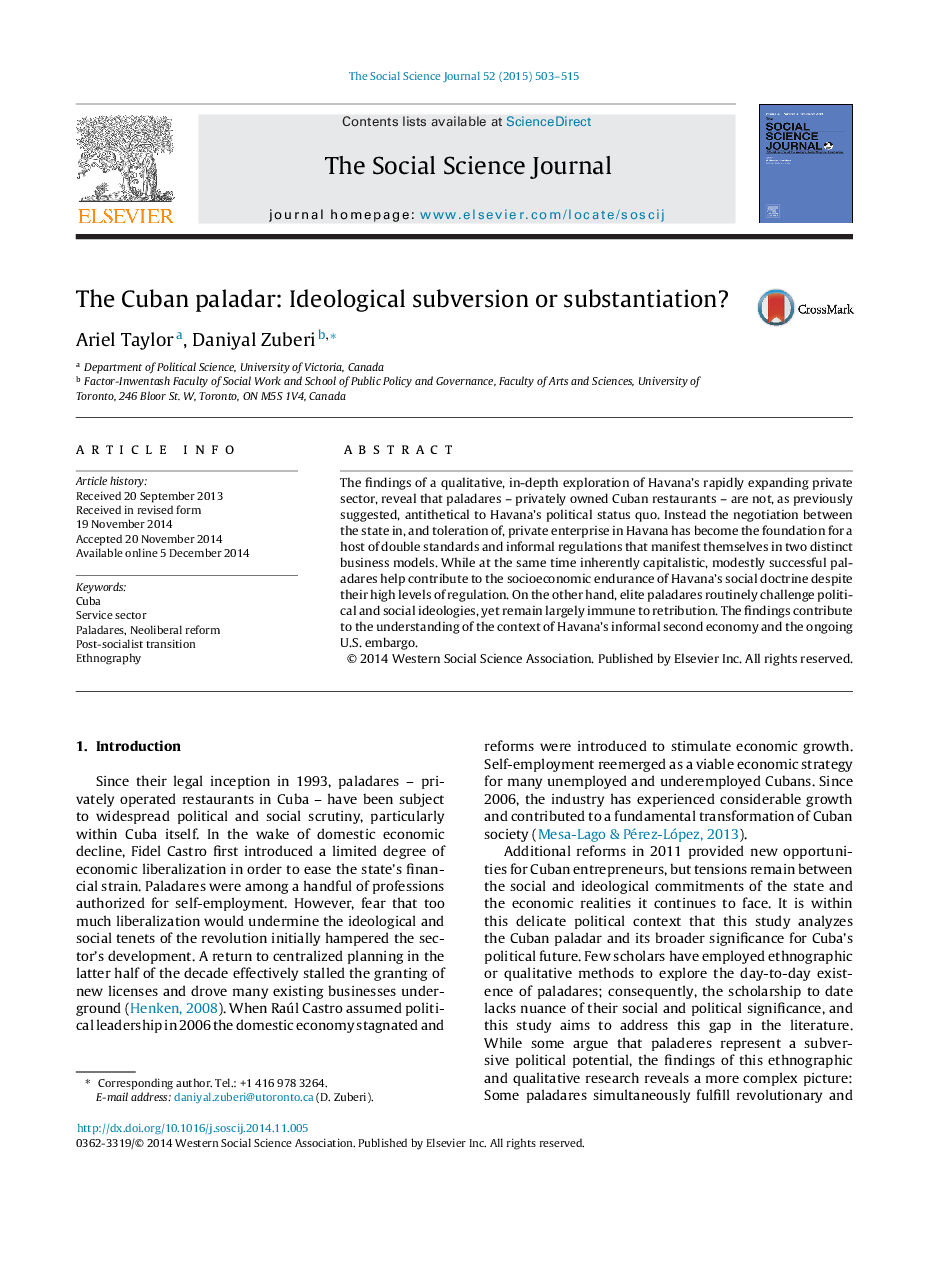| Article ID | Journal | Published Year | Pages | File Type |
|---|---|---|---|---|
| 140073 | The Social Science Journal | 2015 | 13 Pages |
The findings of a qualitative, in-depth exploration of Havana's rapidly expanding private sector, reveal that paladares – privately owned Cuban restaurants – are not, as previously suggested, antithetical to Havana's political status quo. Instead the negotiation between the state in, and toleration of, private enterprise in Havana has become the foundation for a host of double standards and informal regulations that manifest themselves in two distinct business models. While at the same time inherently capitalistic, modestly successful paladares help contribute to the socioeconomic endurance of Havana's social doctrine despite their high levels of regulation. On the other hand, elite paladares routinely challenge political and social ideologies, yet remain largely immune to retribution. The findings contribute to the understanding of the context of Havana's informal second economy and the ongoing U.S. embargo.
